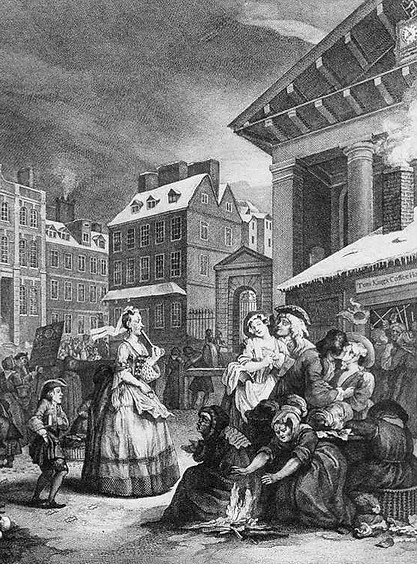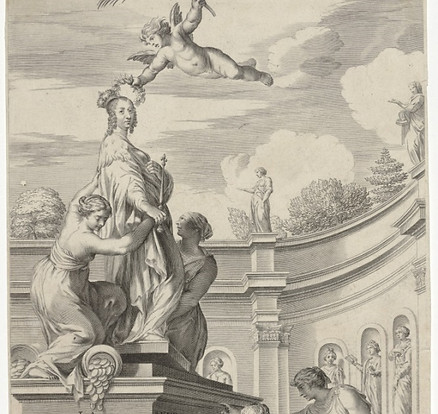Mary Jo Mac Donald
Publications
"Persons of the Sex are True Wonders": Gabrielle Suchon on Difference and Political Wonders
Gabrielle Suchon’s Treatise on Ethics and Politics (1693) offers surprising descriptions of sexual difference for an ostensibly feminist work. Stereotypically feminine traits—such as excessive emotions, chattiness, and deception—are compared to earthquakes, storms, wildfire, and apparitions. Although these descriptions may seem off-putting to modern readers, I argue that Suchon is making a novel intervention in debates about the nature of sexual difference. In the Renaissance and Early Modern period, the salient question about feminine difference was whether it was a preternatural deformity, and specifically a monstrosity. While most pro-woman authors argued that women were not preternatural, Suchon argues the affirmative, claiming that “persons of the sex are true wonders.” In doing so, Suchon presses on a tension at the heart of scholastic conceptions of women while also provoking an emotional response that might encourage men to reconsider whether patriarchal practices are truly to their advantage.

Equality, Modernity, and Inclusion in Judith Drake's Essay in Defence of the Female Sex
Judith Drake’s Essay in Defence of the Female Sex (1696) is a unique contribution to early English feminist thought. Both scathingly funny and remarkably erudite, the work wades into a variety of philosophical, political, and literary debates, showing how they can be brought to bear on the ‘woman question’. Today, the text is unfortunately neglected. The scant literature on Drake treats her as an inconsistent thinker, whose Lockean epistemology mars her feminist project. This paper challenges this reading by arguing that Drake is not simply derivative of Locke but offers an original and prescient argument for women’s inclusion. Rather than base sexual equality on a claim that men and women are identical, Drake argues that sexual differences cannot justify the exclusion of women from public life in modern societies. Drake identifies fundamental transformations happening in her society—including the rise of commerce, changes in print culture, and the emergence of a public sphere— and argues that these advancements have provided opportunities for (at least some) women's inclusion. Taking Drake seriously on her own terms, and not merely as a proxy for Locke, offers fresh insights into enduring debates about the relationship between equality, modernity, and inclusion.

ACKNOWLEDGING SEXUAL EQUALITY: HOBBES' AND CAVENDISH'S AMAZONS
This paper reads Margaret Cavendish's Bell in Campo (1662), a play about an Amazonian army, as an implicit critique of Hobbes's own depiction of the Amazons. In the play, Cavendish adopts a Hobbesian conception of equality and, like Hobbes, uses the Amazons as evidence of this natural equality. She departs from Hobbes, however, in setting her Amazon tale in a modern civil war. For Cavendish, Hobbes's Amazons are insufficiently threatening, as he obscures the fact that this matriarchal society finds its origins in a rebellion of wives against their husbands. By retelling the Amazons tale in the context of civil war, she reminds Hobbes of the importance of extending the ninth law of nature—that we acknowledge each other's equality—to both sexes.

Works in Progress
OROONOKO, THE SLAVE TRADE, AND THE ORIGINS OF ENGLISH FEMINISM
Revise and Resubmit at American Political Science Review
This paper investigates a controversial feature of Mary Astell’s thought: the comparison between marriage and slavery. While existing scholarship situates this analogy within the neo-Roman republican framework, which defined slavery as subjection to any form absolute rule, I investigate another paradigm: the transatlantic slave trade. To make this case, this paper traces the influence of Aphra Behn’s Oroonoko (1688) on early feminist thought. By foregrounding the market logic underpinning racial chattel slavery, Behn popularized the idea that slavery’s harms were rooted, not in the exercise of absolute power, but in the commodification of human beings. Mary Astell appropriated this insight, showing that marriage resembled slavery not merely because husbands wielded power over wives, but because the institution itself had been commodified: women were treated as things to be bought and sold. In uncovering this neglected genealogy of feminist thought, this paper highlights the enduring conceptual contributions of the “first” English feminists—insights that are entangled with, and shaped by, the development of the modern slave trade.
